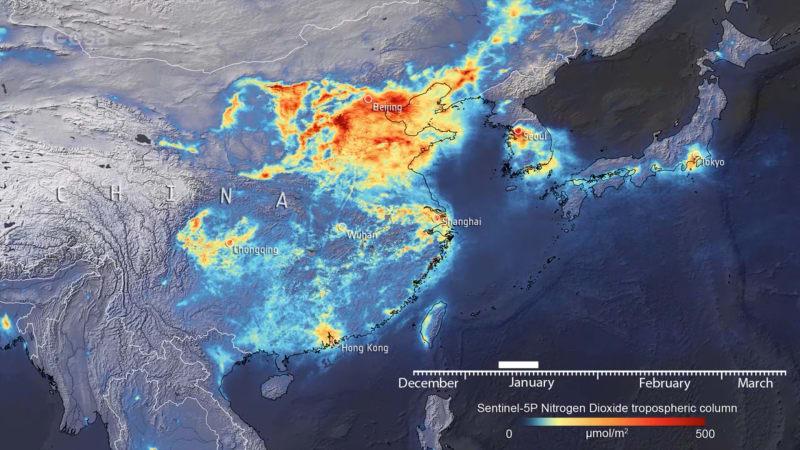China’s NO2 emissions rising as country recovers from coronavirus lockdown
https://ift.tt/33yHaXf

Last week, the European Space Agency (ESA) released an animation showing the reduction in nitrogen dioxide (NO2) emission levels over northern Italy. The ESA describes NO2 as “a noxious gas emitted by power plants, cars and factories,” one of the family of nitrogen oxides that come up in discussions of diesel emissions. The chemical reactions between such oxides and other elements in the air create ozone and the particulate matter that turns into visible air pollution. Data from the Sentinel-5P satellite in the Copernicus Atmosphere Monitoring Service (CAMS) array showed, from January 1 to March 11, Italy’s country-wide lockdown severely curtailing NO2 levels over the country’s industrialized Po Valley region. The ESA has taken the same measurements in China, showing an enormous drop from last December to early March. A research Center in Finland said China’s CO2 emissions decreased by around 200 million tons in February alone, roughly half as much CO2 as Britain releases in a year. Yet as China recovers and its industry picks up again, the latest ESA imagery shows NO2 emissions recovering, as well.
From December 20 to early March, the imagery showed a 20%-30% decline in particulate matter overall throughout China, starting in Wuhan, the epicenter of the novel coronavirus outbreak, and moving outward over the rest of the country. The drop was most pronounced from mid January to late February, hitting 40% over major cities, after China took the severest measures to contain the outbreak. The decrease would have been helped by celebrations for the Chinese New Year, which lower emissions around this time annually, Yet particulate matter measurements in February were still lower compared to the last three years of data. Around late February and up to the last days of data, based on a ten-day moving average and running to March 16, clearly defined areas of particulate matter can be seen returning. Now that China’s declaring the worst of the outbreak over, and desperate to get its supply chain running again, it could mean quick return to compromised air quality.
Sentinel-5P is one of seven Copernicus satellites circling the Earth, fitted with a TROPOMI (Tropospheric Monitoring Instrument) to measure changes in trace gasses like aerosols, carbon monoxide, nitrogen dioxide, methane and sulfur dioxide in the atmosphere. NO2 is considered “a first-level indicator of industrial activity worldwide.” What happens after Italy recovers could bolster data from the measurements in China, the ESA saying it will dig into “a detailed scientific analysis which will soon provide more insights and quantified results in the following weeks and months.” The question will be what, if any, pollution-alleviation measures could be taken based on lessons learned during this pandemic.
Related Video:
Auto Blog
via Autoblog https://ift.tt/1afPJWx
March 20, 2020 at 04:23PM
